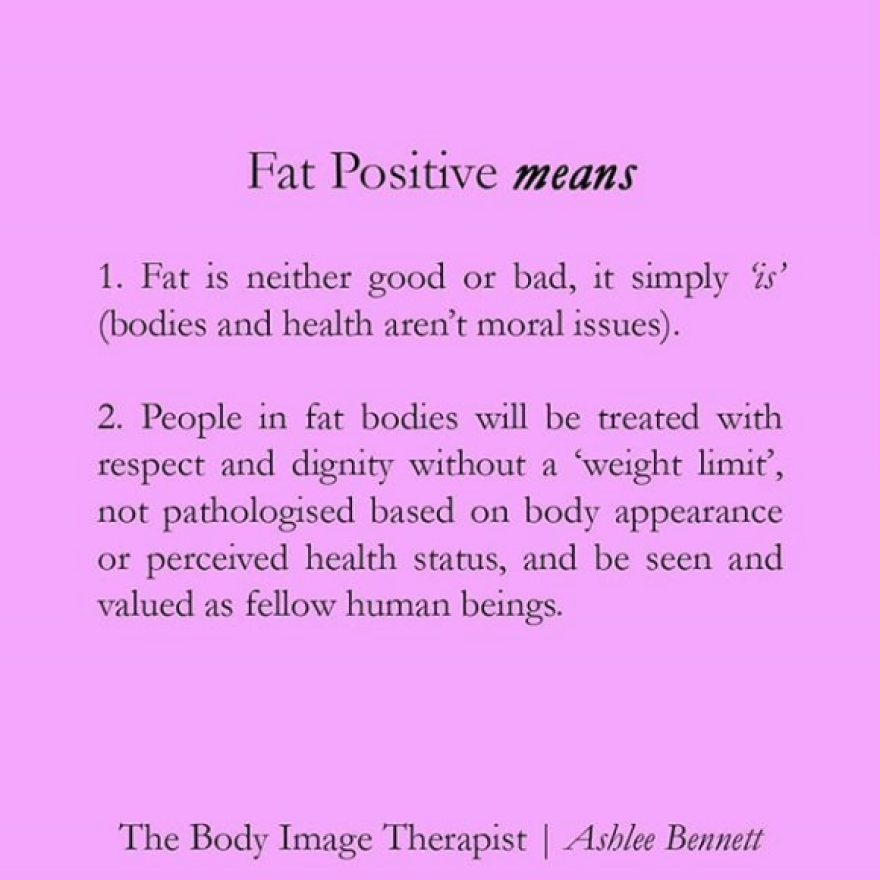North Carolina has some of the highest childhood obesity rates in the country, according to the Centers For Disease Control. That’s despite the fact that we know more about nutrition and healthy habits than ever.
One in eight people in the UK have considered taking their own life because they’re unhappy with the way their body looks. The BBC reports that newly-released survey results from the Mental Health Foundation of 4500 adults also found that more than a third say they are anxious or depressed because of the way their body looks.
U.S. News and World Report cites a 2016 Journal of Pediatrics study of children, aged 9 to 14 years. While it’s common for women to exaggerate what they think of as bodily faults, in kids – more than half of them – boys and girls – were unhappy with their body shape. These feelings, whether in adults or children, increase the risk for future self-destructive thoughts and behaviors including eating disorders, depression, and low self-esteem.
The body-positivity movement promotes, in part, the idea that all bodies are inherently good. Tall, fat, short, round, skinny, brown, white, scarred, lumpy. The movement also advocates for the point of view that fat does not mean unfit and that leanness is not an arbiter of a healthy body. And especially not a measure of physical beauty.
So how do all these seriously self-critical, and ultimately destructive, views arise – particularly in kids? A report of the American Psychological Association (APA) released in 2007 found evidence that the proliferation of sexualized images of girls and young women in advertising, merchandising, and media is harmful to girls' self-image and healthy development.
On this edition of CoastLine, we unpack how our culture is giving rise to negative self-images – and we explore whether the body positivity movement is simply an excuse for accepting unhealthy habits that give rise to chronic disease.
Guests:
Kaitlyn Patterson is a Licensed Psychological Associate at Chrysalis Center for Counseling and Eating Disorder Treatment in Wilmington.
Amelia Huelskamp is an Assistant Professor in the School of Health and Applied Human Sciences at the University of North Carolina Wilmington.



